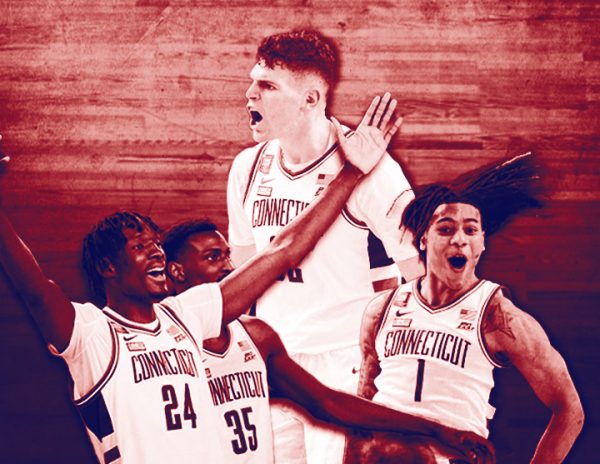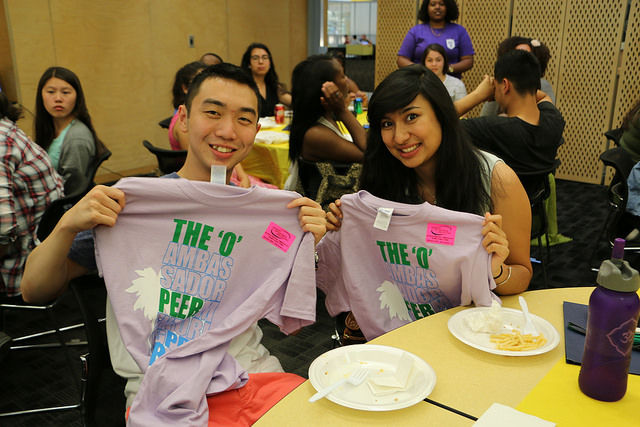Shared experiences: Freshmen interest in multicultural mentorship program increases
September 16, 2015
Incoming minority students face an extra challenge at Tulane as they navigate the majority white, heterosexual population. The Office of Multicultural Affairs’ Ambassador Peer Mentoring Program strives to make their transition a little easier every fall.
The program works to match each freshman with a sophomore, junior or senior who will serve as a resource, support system and friend. It builds a community among its participants and connects students of minority backgrounds to give them a voice on campus.
According to Carolyn Barber-Pierre, assistant vice president for student affairs/intercultural life, this year has been the program’s largest yet with over 80 mentors and mentees.
“It’s a great way for students to be matched, particularly our students of color and our LGBT students, with someone who’s familiar with campus and can teach them about all the resources and answer questions about the climate,” Barber-Pierre said.
The program matches students not by race, ethnicity or sexuality, but by what they plan to study at Tulane.
Karen Hernandez, a freshman in the program, hopes to become a mentor someday.
“I think it’s important for freshmen to feel like they can rely on someone on campus,” Hernandez said.
Hernandez joined the program in an effort to find other ethnically diverse students like herself within the Tulane community.
“In college, it can be hard to find people who share the same experiences as you. The O makes it easy to connect with people you might not have found on your own,” she said.
Though there are many clubs on campus that serve to support and celebrate different cultures and identities, The O serves as the “home base” for all of these organizations according to senior and mentor Joseph Colon, who joined the program as a freshman.
“The O is like the spearhead, the leader in charge of representing us and getting our voices heard on campus,” Colon said.
Colon recognizes the use of bottom-up activism on campus — change that begins with the students instead of starting at the administrative level.
“In terms of getting heard, I think from our perspective it’s very slow and incremental … ” Colon said. “We just don’t get enough funding, we do a lot for a population that isn’t serviced the best. We obviously want institutional change and representation, but it’s like communities anywhere around the world from the bottom up saying ‘we’re here and we’re going to make our voices heard.”‘
While Tulane’s student body boasts geographical diversity, its racial diversity is not as prominent. The O works to create a supportive and welcoming environment for all students, but especially students of minority groups that may feel underrepresented on campus.
“It’s amazing that we have such geographical diversity … ” sophomore Dillon Perez, mentor and multicultural council chair for the Undergraduate Student Government, said. “It’s definitely a hallmark of Tulane, but the issue is that there’s so much more to making a truly diverse and inclusive campus than just the geographic location of where you’re from.”
The New Orleans population is approximately 32 percent white. In the fall of 2014, over 76 percent of Tulane’s incoming freshman class was white. Based on these numbers, there is a disconnect between the diversity present in the city and the diversity represented on campus.
“I think it’s hard to separate how Tulane exists as a university without acknowledging the larger context of New Orleans,” Colon said.
This is a historic trend that has not yet been reversed. In the past, predominantly white neighborhoods were seen as good investments and received more money and resources, whereas neighborhoods housing minorities were seen as poor investments, according to Colon.
This difference in funding and the resulting difference in opportunities caused these areas to remain divided. Tulane was built in one of the wealthier, less diverse neighborhoods.
“There’s not equal footing in the conversation between the residents of the city and the university,” Colon said. “Because America has a hard time dealing with race and ethnicity, these conversations often aren’t had at any level. People of color have been forced to have these conversations because we live it daily, but other people don’t have to think about it.”
According to Perez, underrepresented groups on campus often feel that Tulane can be a disrespectful and unwelcoming environment, regardless of whether or not that is intentional on behalf of the students.
“Even if the general Tulane student, for instance, isn’t overtly racist, it doesn’t mean that there’s not still work to be done until everybody on this campus feels like they have an equal stake in this campus’ future,” Perez said.
The O has built a community to fulfill a mission of support, advocacy and appreciation for all cultures, providing every student with an equal opportunity to succeed regardless of ethnicity, sexual orientation or socioeconomic background.
“We are an inclusive, advocate-based safe space and safe organization for students to come to whenever they need to vent, whenever they want connections, whenever they feel they are at a disadvantage versus other students in terms of navigating the Tulane environment,” Perez said. “And I think that we have made leaps and bounds in terms of how we do that and in terms of how many people do recognize us on campus.”
Any student who feels unheard, disadvantaged or underrepresented on campus is encouraged to visit the Office of Multicultural Affairs where they will be connected with resources and support from the community.
—























Leave a Comment